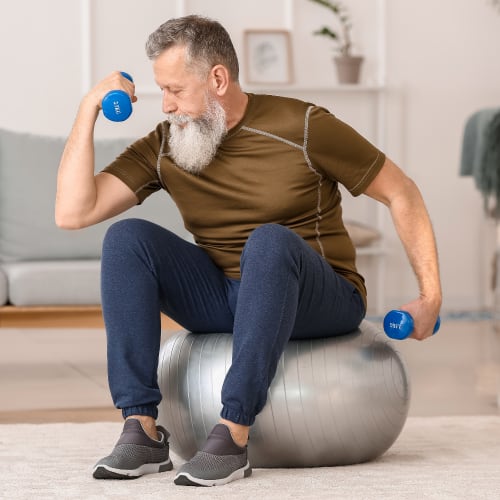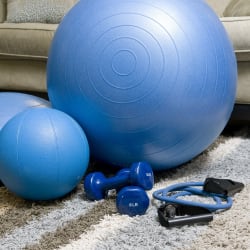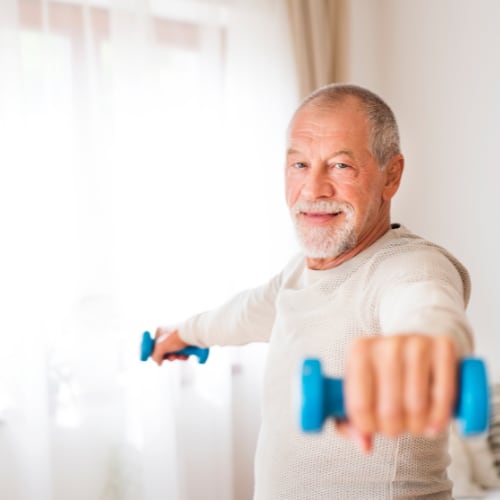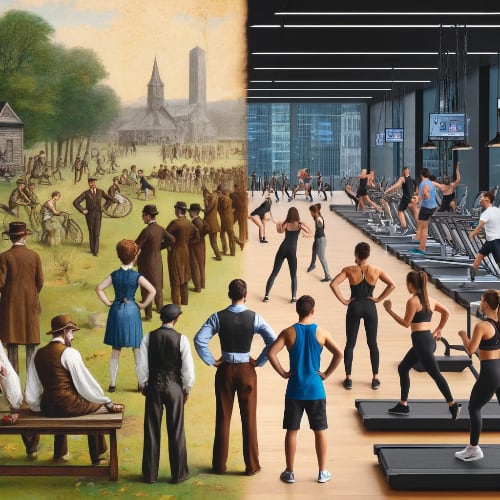 How We Move Matters
How We Move Matters
How We Move Matters
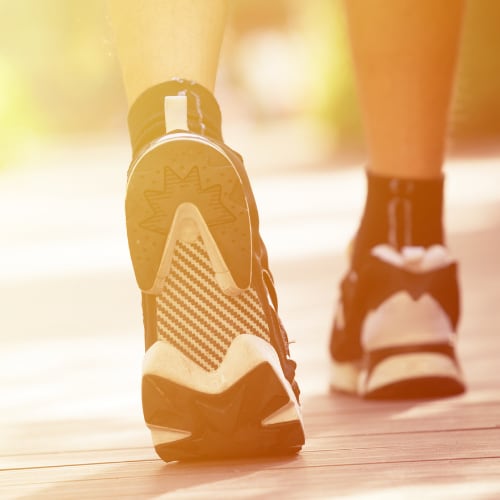
-
Main Ideas
Learning Objective
Understand the significant impact of physical activity on both physical and mental health, and identify specific benefits of exercises like walking and yoga for overall well-being.
Behavioral Objective
Incorporate at least one new physical activity, such as walking or yoga, into your weekly routine and document its effects on mood, energy, and physical health.
Key Thought
Physical movement is not just essential for the body but also vital for cognitive function, mood regulation, and long-term mental health.
-
Main Ideas
Learning Objective
Understand the significant impact of physical activity on both physical and mental health, and identify specific benefits of exercises like walking and yoga for overall well-being.
Behavioral Objective
Incorporate at least one new physical activity, such as walking or yoga, into your weekly routine and document its effects on mood, energy, and physical health.
Key Thought
Physical movement is not just essential for the body but also vital for cognitive function, mood regulation, and long-term mental health.
-
Terms
- Cognitive Deterioration
noun
The gradual decline of mental functions such as memory, attention, and decision-making, often associated with aging or neurodegenerative diseases.
- Executive Functioning
noun
A set of mental processes that help with planning, focus, remembering instructions, and managing multiple tasks successfully.
- Inflammation
noun
The body's natural response to injury, infection, or stress. While acute inflammation aids healing, chronic inflammation can damage tissues and contribute to conditions like arthritis, heart disease, and diabetes.
- Motor Skills
noun
The coordinated movements of muscles and body parts that allow for actions such as walking, running, grasping, and balance.
- Neurodegenerative Diseases
noun
Chronic and progressive diseases that affect the brain, including Alzheimer's, Parkinson's, and other forms of dementia.
- Physical Activity
noun
Any movement that works your muscles and requires energy, essential for maintaining physical strength, vitality, and overall health.
-
Terms
- Cognitive Deterioration
noun
The gradual decline of mental functions such as memory, attention, and decision-making, often associated with aging or neurodegenerative diseases.
- Executive Functioning
noun
A set of mental processes that help with planning, focus, remembering instructions, and managing multiple tasks successfully.
- Inflammation
noun
The body's natural response to injury, infection, or stress. While acute inflammation aids healing, chronic inflammation can damage tissues and contribute to conditions like arthritis, heart disease, and diabetes.
- Motor Skills
noun
The coordinated movements of muscles and body parts that allow for actions such as walking, running, grasping, and balance.
- Neurodegenerative Diseases
noun
Chronic and progressive diseases that affect the brain, including Alzheimer's, Parkinson's, and other forms of dementia.
- Physical Activity
noun
Any movement that works your muscles and requires energy, essential for maintaining physical strength, vitality, and overall health.
Introduction
Everyone knows being active is essential to being physically healthy. Getting up and moving gets the blood pumping, the heart working, and keeps our muscles strong. But did you know that being physically active can have as big of an impact on your brain as it does on your body?
How Physical Activity Impacts the Brain
In Utero Effects of Exercise
Exercise's positive effects on the brain start in the womb and go all the way through old age. That's right- the womb! Studies have shown that babies of mothers who were physically active during pregnancy have better-developed motor skills and are more coordinated. While more research is needed to demonstrate how this is happening, more blood, nutrients, and oxygen could be received through the placenta during the mother's exercise. The benefits start before birth and continue from there.
Childhood Benefits of Exercise
Children need exercise to develop a healthy body composition, bone density, and social skills. Physical activity in children is important for self-confidence, bolstered immune systems, and cardiovascular health. However, one of the most important benefits of exercise for kids is its effect on the brain. Exercise in children can improve memory and processing speeds, cognition, and executive functioning. This is why exercise during the school day is so important, as it supports the learning and retention process.
Benefits of Exercise in Aging Adults
The mental benefits carry from childhood into teen and adult age. Physical activity is shown to reduce symptoms of anxiety in adulthood. Exercise can improve mental clarity and focus. Recently, studies have shown that physical activity helps prevent age-related cognitive deterioration and neurodegenerative diseases. This gives us the knowledge that regular physical activity can protect against the impact of aging on both the body and the mind.
While the benefits that exercise provides to the body are well known, it is important to be aware of the neurological benefits as well. The amount you move your body is a key lifestyle factor in obtaining optimal physical and mental health throughout the lifespan.
Why Walking is the Perfect Exercise
Walking is highly underrated. It does not require an expensive gym membership, equipment, or a high skill level. All you need is a pair of tennis shoes and the motivation to walk out the door! Take a look at the list of walking benefits below, and it might be the boost you need to walk your way to healthier you.
- Boosts Energy: walking increases oxygen levels throughout the body, waking up the system
- Mental Clarity: walking can provide a boost in creativity and processing
- Immune Boost: regular walking can decrease the risk of cold and flu
- Weight Management: Walking burns calories and boosts the metabolism
- Joint protection: Walking lubricates the joints
- Heart Health: walking 30 minutes per day 5x per week reduces risk of heart disease by 19%1
- Mood Boost: walking can improve self-esteem and fend off depression and anxiety
So next time you're stressed, heavy, sad, or slump, lace up your shoes and hit the pavement. It's easy, affordable, and effective!
Yes to Yoga!
The ancient practice of Yoga uses both the mind and body, merging the two. Scientists have studied the practice for decades and found the benefits astounding. Check them out below, and then try a pose out for yourself...yoga is accessible to everyone, no matter your size, fitness level, disability, or flexibility!
Benefits of Yoga
- Improves flexibility
- Reduces inflammation in the body
- Decrease in chronic pain, especially back pain
- Reduces symptoms of anxiety
- Increases sleep quality
- Reduces symptoms of arthritis
- Increases energy
- Increases strength
- Improves breathing
- Helps manage stress
- Improves balance
- Improves quality of life
This spectacular list of benefits comes from several facets of yoga practice, including breathing techniques, pose holds, meditation, inversions, movement flow, and more. The regular practice of yoga can lead to regulated stress hormones, reduced inflammatory markers, melatonin production, vagus nerve stimulation, and more- providing benefits you have to feel to believe- so get started now!
There are many ways to incorporate yoga into your life. Check out a few ways below!
How to Add Yoga Into Your Routine
- Do a Google search for classes in your local community! (A great way to test out a studio is to find a monthly deal on Groupon!)
- Get a book of poses from a bookstore or library
- Follow free yoga videos from YouTube on your phone, smart tv, or iPad (We have listed some of our favorite instructors below)
Free Online Yoga Resources
- https://www.youtube.com/user/yogawithadriene
- https://www.youtube.com/c/sarahbethyoga
- https://www.youtube.com/c/YogaWithBird
What will you need to practice? The great thing about yoga is that many classes have no requirement for props, and you can do most poses on a carpeted floor. But if you want to have everything ready, we have got you covered.
- Yoga Mat can be replaced with a beach towel or simply no mat at all
- Yoga blocks can be substituted with a thick book (dictionary or encyclopedia) wrapped in a small cloth
- Yoga strap can be replaced with a tie or rolled-up dish towel
- Yoga bolster can be replaced with one or two thick dense pillows
Citations:
1 Murtagh, E. M., Murphy, M. H., & Boone-Heinonen, J. (n.d.). Walking - the first steps in cardiovascular disease prevention. Current Opinion in Cardiology. Retrieved from https://www.ncbi.nlm.nih.gov/pmc/articles/PMC3098122/
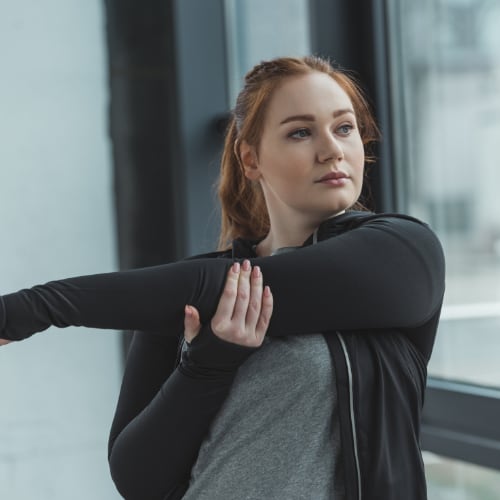

Simple Fitness Movements
Learn more about how you can improve your health by adding a few simple physical movements to your lifestyle.
Park Further Away
Objective: Incorporate more movement into your daily routine by parking further away from your destination.
Activity:
- Choose a parking spot at the back of the parking lot when visiting places like the grocery store or office.
- Plan an extra few minutes for the walk and ensure you're dressed appropriately for the weather.
- Repeat this habit throughout the week to make walking a regular part of your daily routine.
Walk It Out
Objective: Incorporate walking into your daily routine to boost physical activity and improve overall health.
Activity:
- Set a goal to walk for at least 30 minutes every day this week. You can break this into shorter sessions if needed (e.g., three 10-minute walks).
- Choose different walking routes, such as a local park, your neighborhood, or even around your office building during breaks.
- Notice how walking impacts your energy levels and mood, and consider increasing the distance or time as the week progresses.
Choose to Move
Objective: Increase your weekly physical activity by incorporating both moderate and vigorous exercises.
Activity:
- Set a goal to incorporate 2 hours of moderate physical activity (e.g., brisk walking, light cycling) over the week.
- If preferred, substitute moderate activities with at least 1 hour of vigorous exercises (e.g., jogging, intense cycling).
- Break the activity into smaller 10-minute bursts if needed and track your progress throughout the week.
Explore Yoga
Objective: Introduce yoga into your wellness routine to improve flexibility, reduce stress, and enhance overall well-being.
Activity:
- Choose one or two beginner yoga sessions to try this week, either through an online class, a local studio, or a yoga app.
- Set aside 20-30 minutes at least three times this week to practice yoga and focus on your breathing, posture, and mindfulness.
- Reflect on how yoga affects your physical and mental state, and aim to increase your practice time or difficulty in future sessions.
Track Your Movement
Objective: Monitor your daily physical activity to understand your movement patterns and set new fitness goals.
Activity:
- Use a fitness tracker, app, or pedometer to track how much you move each day for a full week.
- Record your steps, distance, or duration of physical activities (such as walking, cycling, or workouts).
- At the end of the week, review your data and set a goal to increase your physical activity by 10% for the following week.
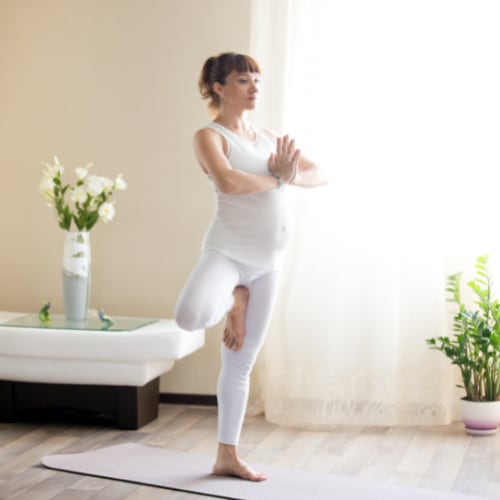

Yoga Benefits
Yoga has numerous potential benefits including relieving body pain, headaches, lowering blood pressure and even helping you sleep better. It also helps increase muscle tone and flexibility among many other helpful things. Yoga can help your body heal and is also something you can do alone at home or in conjunction with others.
Download or print this Yoga Infographic to see how Yoga can help you.
Habit Tracker
Tracking the actions you have performed towards achieving a goal helps you to see if what you are doing is helping you to accomplish it. Document your goal, the action you took, when you took the action, and the outcome.
Download or print this Habit Tracker to help you track your progress.
Course Outline
![]() Session Expired from Inactivity
Session Expired from Inactivity
Do you want to?
9618 Jefferson Highway, Suite D-191
Baton Rouge LA 70809-9636
(888) 424-0032 |
support@supplementrelief.com
* Disclaimer: This page is available exclusively for SupplementRelief.com clients. None of the information on this website is intended to replace your relationship with your healthcare provider(s). Nothing should be considered medical advice. The information, knowledge, and experience shared on this website are the opinions of SupplementRelief.com. This site and its content are intended to enhance your knowledge base as YOU MAKE YOUR OWN HEALTHCARE DECISIONS in partnership with your qualified health professional.
* These statements have not been evaluated by the Food and Drug Administration. These products and services are not intended to diagnose, treat, cure, or prevent disease.
* There is NO GUARANTEE OF SPECIFIC RESULTS for the products or services offered, and the RESULTS CAN VARY for each individual. Any results claimed by our customers are based on individual experiences that are unique and cannot be guaranteed.
FirstFitness Nutrition and NuMedica may be promoted and sold on the internet ONLY by Authorized Resellers who have been approved by and have registered their website domain with these companies. They strictly prohibit, and actively monitor, the UNAUTHORIZED SALE or RESALE of their products in ALL online public shopping portals including Amazon, eBay, and others and into other countries. All products purchased in SupplementRelief.com are for PERSONAL USE ONLY and CANNOT BE RESOLD to others. Please report violations of Reseller Policy directly to FirstFitness Nutrition at 800.621.4348 and to NuMedica at 800.869.8100.
The content and photographs on this website are copyrighted or Licensed Material and may not be downloaded for other than personal use. Republication, retransmission, reproduction, or any other use of the content or photographs is prohibited. ©2010-2024 SupplementRelief.com.
Are you sure you want to remove this item?

